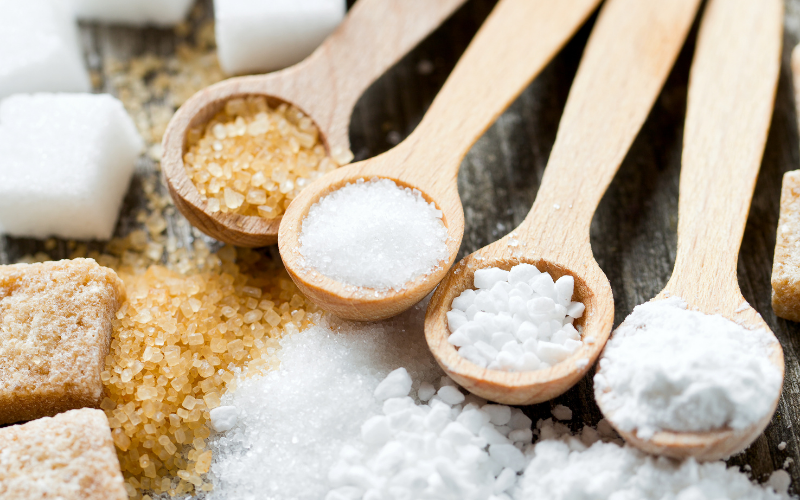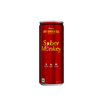In today’s health-focused world, the spotlight is shifting from refined sugars to smarter, healthier alternatives. With rising concerns about obesity, diabetes, and heart health, sugar alternatives have taken center stage in the food industry. Brands and consumers alike are seeking low-calorie sweeteners that offer taste without compromising health.
Whether you’re a manufacturer formulating a new product or a mindful consumer scanning food labels, understanding the right sugar substitute can transform your health and your taste experience.
Why Replace Sugar in Food Products?
Too much sugar consumption has caused many health-related issues. Here are the primary reasons food manufacturers and consumers are choosing sugar alternatives:
Health Issues: High amounts of refined sugar contribute to obesity, type 2 diabetes, fatty liver disease, and heart disease.
Fewer Calories: Sugar alternatives typically have fewer or no calories, so they are treated just like sugar in low-calorie food products.
Blood Sugar Control: Some sugar alternatives do not raise blood glucose, so they can be safer choices for those with diabetes.
Consumer Usage: There is a growing marketplace for low-sugar, keto, and diabetic-safe products.
Types of Sugar Alternatives for Food Products

Sugar alternatives can be generally broken down into natural sweeteners and artificial (synthetic) sweeteners; each category has their advantages and disadvantages depending on the intended use.
1. Natural Sugar Alternatives
Natural sweeteners come from plants and fruit sources. They are often considered healthier and are frequently used in organic and health food products.
a. Stevia
Sweetness: 300x sweeter than sugar
Benefits: Zero calories, diabetic-friendly
Best For: Beverages, baked goods, sauces
b. Monk fruit
Sweetness: Extremely high (from mogrosides)
Benefits: Keto-approved, heat-stable, non-glycemic
Best For: Protein bars, snacks, flavored drinks
c. Erythritol
Sweetness: 70% of sugar
Benefits: Low-calorie, minimal blood sugar effect
Best For: Chocolates, gums, low-carb baking
d. Xylitol
Sweetness: Like sugar
Benefits: Tooth-friendly, low glycemic index
Best For: Mints, candies, dental products
2. Artificial Sugar Alternativas
These sweeteners are made from chemicals, but they are now widely accepted to be included in food products. It is used due to their extreme sweetness and absence of a caloric value.
a. Aspartame
Sweetness: 200x sugar
Best For: Diet sodas, yogurts, puddings
Not suitable for people with PKU
b. Sucralose
Sweetness: 600x sugar
Best For: Baking, frozen desserts, hot beverages
c. Acesulfame K
Sweetness: 200x sugar
Best For: Soft drinks, dairy items, baked goods
Selecting the Appropriate Sugar Substitute
When developing a food product with a sugar substitute, food manufacturers must consider:
Sweetness Level: Some substitutions can be as much as several hundred times sweeter than sugar. Therefore, some formulations may need to be altered due to a higher sweetness standard.
Taste: Some sugar alternatives may confer a bitter or metallic aftertaste.
Stability: Not every sweetener is heat-stable, and some will disintegrate when baked or cooked.
Labeling and Claims: The use of label claims such as “natural,” “non-GMO,” or “keto-friendly” may create an impression with consumers.
Price and Availability: Natural sweeteners can be sourced in bulk too price is prohibitive to produce a food product, limiting their use.
Application of Sugar Substitutes Within Food Products
Sugar substitutes have found their way into various food and beverage categories.
Beverages: Diet sodas, flavored carbonated water, and energy drinks now utilize sugar substitutes such as sucralose, stevia, or erythritol.
Bakery: Cookies, cakes, and bread incorporate sugar substitutes such as xylitol, monk fruit, and stevia to manage calories.
Dairy: Many flavored yogurts and ice cream have introduced sucralose, aspartame, or sugar alcohol as a sugar alternative
Snacks: Many different protein bars marketed as healthier snacks utilize erythritol and monk fruit as sugar alternatives.
Confectionery: Chewing gum, candy, and chocolates have incorporated sugar alcohol xylitol into their products for taste without the risk of dental decay.
Health and Regulatory Considerations
Sugar alternatives used are body RH Regulatory and safe by the World Health Organization's representatives, i.e.:
- FDAT (U.S. Food and Drug Administration)
- EFSA (European Food Safety Authority)
- WHO (World Health Organization)
It is important to follow the Acceptable Daily Intake (ADI) and any allergies or health conditions one may have when selecting a sweetener.
Future of Sugar Alternatives in Food
Corporate investment in R&D, and increased consumer interest are rapidly sending the market forward in sugar alternatives. New ingredients (allulose, tagatose, new stevia extracts) are under research for taste, reduced side effects, and improved food application.
Food brands that use natural, low-calorie sweeteners will have a competitive advantage in a health-oriented market. Expect to see demand for clean labels, functional nutrition, and healthier diabetic products.
Conclusion
As we transition into a more health-minded future, sugar alternatives have gone from being niche ingredients to becoming a dominant force in the market. Whether you produce food products or consume them, it is essential to understand the sweeteners used and how they relate to your health goals or market demands.
By harnessing the right designed sugar alternatives for food products, manufacturers can now generate better taste, better nutrition, and more preferences for today's informed consumer.
FAQs About Sugar alternatives to food products
1. What are the best sugar alternatives for baking?
Stevia and monk fruit work great for low-calorie baked products; however, erythritol and sucralose tend to work better as they are stable and mimic sugar texture. There are times when a blend of natural sweeteners is used to get a better taste and better structure.
2. Are sugar alternatives safe for kids?
Most sugar alternatives that are FDA-approved, such as stevia and sucralose, are fine in moderation. However, it is always a good idea to check with your child's pediatrician, especially if there are any health concerns.
3. Do sugar alternatives impact blood glucose?
Many sugar alternatives like stevia, monk fruit, and erythritol do not impact blood glucose levels, making them safe for diabetics. Some sugar alcohols may lead to small increases in some people.
4. Can sugar alternatives cause you digestive issues?
Sugar alcohols can also cause bloating or gas if you eat a lot of them. Start with small portions, then gradually increase the amount to see if you experience digestive symptoms.
Our Products
Contact Us
Related Articles

Energy Drinks vs Coffee: Which Gives a Better Boost?
Nov 12, 2025

Artificial Vs Natural Sweeteners
Nov 12, 2025

Difference Between Artificial & Natural Colours
Nov 12, 2025








